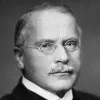It’s through universal Misunderstanding that everybody comes to agreement.
If, by some misfortune, everybody understood each other, one could never come to agree.
[C’est par le malentendu universel que tout le monde s’accorde.
Car si, par malheur, on se comprenait, on ne pourrait jamais s’accorder.]Charles Baudelaire (1821-1867) French poet, essayist, art critic
Journaux Intimes [Intimate Journals], “Mon cœur mis à nu [My Heart Laid Bare],” § 99 (1864–1867; pub. 1887) [tr. Sieburth (2022)]
(Source)
(Source (French)). Alternate translations:It is by universal misunderstanding that all agree.
For if, by ill luck, people understood each other, they would never agree.
[tr. Isherwood (1930)]It is by universal misunderstanding that we agree with each other.
If, by some misfortune, we understood each other, we would never agree.
[Source]
Quotations about:
agreement
Note not all quotations have been tagged, so Search may find additional quotes on this topic.
The best you can do is grant my demand,
Your second-best course to refuse it off-hand;
I welcome assent and denial excuse —
But, Cinna, you neither consent nor refuse.[Primum est ut praestes, si quid te, Cinna, rogabo;
illud deinde sequens, ut cito, Cinna, neges.
Diligo praestantem; no odi, Cinna, negantem:
sed tu nec praestas nec cito, Cinna, negas.]Martial (AD c.39-c.103) Spanish Roman poet, satirist, epigrammatist [Marcus Valerius Martialis]
Epigrams [Epigrammata], Book 7, epigram 43 (7.43) (AD 92) [tr. Pott & Wright (1921)]
(Source)
Source (Latin). Alternate translations:My iust demands soone graunt or soone deny,
Th' one friendship showes, and th' other curtesie.
But who nor soon doth graunt, nor soone say noe,
Doth not true friendship, nor good manners know.
[tr. Davison (1602)]The first love, Cinna, is to grant what I
Request; the second quickly to deny.
I love the one, the other hate not I;
But thou nor grant'st, nor quickly dost deny.
[tr. May (1629), 7.42]The kindest thing of all is to comply;
The next kind thing is quickly to deny:
I love performance; nor denial hate:
Your "Shall I, Shall I?" is the cursed state.
[tr. Hay (1755)]To grant must doubtless be the primal boon:
The next, my Cinna, to deny me soon.
I love the former, nor the latter hate:
But thou not grantest, and deniest late.
[tr. Elphinston (1782), Book 5, ep. 53]The greatest favour that you can do me, Cinna, if I ask anything of you, is to give it me; the next, Cinna, to refuse it at once. I love one who gives, Cinna; I do not hate one who refuses; but you, Cinna, neither give nor refuse.
[tr. Bohn's Classical (1859)]Cinna, grant me my request:
(I warmly hope you'll choose to!)
Or do what I think second best,
In haste refuse to.
Patrons I esteem, nor hate
The man I can't bamboozle:
But you give naught, yet make me wait
A slow refusal.
[tr. Nixon (1911)]The first thing is that you should hand it over if I ask anything of you, Cinna; the next thing after that, Cinna, is that you should refuse quickly. I like a man who hands over; I do not hate, Cinna, a man who refuses; but you neither hand over, nor do you, Cinna, quickly refuse.
[tr. Ker (1919)]'Tis best to grant me, Cinna, what I crave;
And next best, Cinna, is refusal straight.
Givers I like: refusal I can brave;
But you don't give -- you only hesitate!
[tr. Duff (1929)]Cinna, the best thing would be if you lent
Me anything I asked for. The next best
Would be for you to say no then and there.
I like good givers, and I don't resent
A straight refusal of a small request.
It's ditherers like you that I can't bear.
[tr. Michie (1972)]Best is that you give me anything I ask, Cinna; next best, Cinna, is that you refuse promptly. I like a man who gives; I don't hate a man who refuses, Cinna. But you, Cinna, neither give nor promptly refuse.
[tr. Shackleton Bailey (1993)]Cinna, to give me what I ask is best;
next best is to refuse without delay.
I love a giver, don't resent refusers.
You neither give nor tell me no straightway.
[tr. McLean (2014)]
Hector, stop!
You unforgivable, you … don’t talk to me of pacts.
There are no binding oaths between men and lions —
wolves and lambs can enjoy no meeting of the minds —
they are all bent on hating each other to the death.
So with you and me. No love between us. No truce
till one or the other falls and gluts with blood
Ares who hacks at men behind his rawhide shield.[Ἕκτορ μή μοι ἄλαστε συνημοσύνας ἀγόρευε:
ὡς οὐκ ἔστι λέουσι καὶ ἀνδράσιν ὅρκια πιστά,
οὐδὲ λύκοι τε καὶ ἄρνες ὁμόφρονα θυμὸν ἔχουσιν,
ἀλλὰ κακὰ φρονέουσι διαμπερὲς ἀλλήλοισιν,
265ὣς οὐκ ἔστ᾽ ἐμὲ καὶ σὲ φιλήμεναι, οὐδέ τι νῶϊν
ὅρκια ἔσσονται, πρίν γ᾽ ἢ ἕτερόν γε πεσόντα
αἵματος ἆσαι Ἄρηα ταλαύρινον πολεμιστήν.]Homer (fl. 7th-8th C. BC) Greek author
The Iliad [Ἰλιάς], Book 22, l. 261ff (22.261) [Achilles] (c. 750 BC) [tr. Fagles (1990), l. 308ff]
(Source)
After Hector proposes a pact with Achilles that the winner of their battle will not abuse the corpse of his opponent. Original Greek. Alternate translations:Hector, thou only pestilence in all mortality
To my sere spirits, never set the point ’twixt thee and me
Any conditions; but as far as men and lions fly
All terms of cov’nant, lambs and wolves; in so far opposite state,
Impossible for love t’ atone, stand we, till our souls satiate
The God of soldiers.
[tr. Chapman (1611), l. 224ff]"Talk not of oaths," the dreadful chief replies,
While anger flashed from his disdainful eyes,
"Detested as thou art, and ought to be,
Nor oath nor pact Achilles plights with thee;
Such pacts, as lambs and rabid wolves combine,
Such leagues, as men and furious lions join,
To such I call the gods! one constant state
Of lasting rancour and eternal hate:
No thought but rage, and never-ceasing strife,
Till death extinguish rage, and thought, and life."
[tr. Pope (1715-20)]Hector! my bitterest foe! speak not to me
Of covenants! as concord can be none
Lions and men between, nor wolves and lambs
Can be unanimous, but hate perforce
Each other by a law not to be changed,
So cannot amity subsist between
Thee and myself; nor league make I with thee
Or compact, till thy blood in battle shed
Or mine, shall gratify the fiery Mars.
[tr. Cowper (1791), l. 302ff]Talk not to me of covenants, O most cursed Hector. As there are not faithful leagues between lions and men, nor yet have wolves and lambs an according mind, but ever meditate evils against each other; so it is not possible for thee and me to contract a friendship, nor shall there at all be leagues between us, -- first shall one, falling, satiate the invincible warrior Mars with his blood.
[tr. Buckley (1860)]Hector, thou object of my deadly hate,
Talk not to me of compacts; as ’tween men
And lions no firm concord can exist,
Nor wolves and lambs in harmony unite,
But ceaseless enmity between them dwells:
So not in friendly terms, nor compact firm,
Can thou and I unite, till one of us
Glut with his blood the mail-clad warrior Mars.
[tr. Derby (1864)]Hector, talk not to me, thou madman, of covenants. As between men and lions there is no pledge of faith, nor wolves and sheep can be of one mind, but imagine evil continually against each other, so is it impossible for thee and me to be friends, neither shall be any pledge between us until one or other shall have fallen and glutted with blood Ares, the stubborn god of war.
[tr. Leaf/Lang/Myers (1891)]Fool, prate not to me about covenants. There can be no covenants between men and lions, wolves and lambs can never be of one mind, but hate each other out and out an through. Therefore there can be no understanding between you and me, nor may there be any covenants between us, till one or other shall fall and glut grim Mars with his life's blood.
[tr. Butler (1898)]Hector, talk not to me, thou madman, of covenants. As between lions and men there are no oaths of faith, nor do wolves and lambs have hearts of concord but are evil-minded continually one against the other, even so is it not possible for thee and me to be friends, neither shall there be oaths between us till one or the other shall have fallen, and glutted with his blood Ares, the warrior with tough shield of hide.
[tr. Murray (1924)]Hektor, I'll have no talk of pacts with you, forever unforgiven as you are. As between men and lions there are none, no concord between wolves and sheep, but all hold one another hateful through and through, so there can be no courtesy between us, no sworn truce until one of us is down and glutting with blood the wargod Arês.
[tr. Fitzgerald (1974)]
If we stay strong, then I believe we can stabilize the world and have peace based on force. Now, peace based on force is not as good as peace based on agreement, but in the terrible world in which we live, in the world where the Russians have enslaved many millions of human beings, in the world where they have killed men, I think that for the time being the only peace we can have is the peace based on force.
Edward Teller (1908-2003) Hungarian-American theoretical physicist
“Fallout and Disarmament: A Debate Between Linus Pauling and Edward Teller,” KQED-TV, San Francisco (20 Feb 1958)
(Source)
To be vested with enormous authority is a fine thing; but to have the onlooking world consent to it is a finer.
Mark Twain (1835-1910) American writer [pseud. of Samuel Clemens]
A Connecticut Yankee in King Arthur’s Court, ch. 8 “The Boss” (1889)
(Source)
If men would consider not so much wherein they differ, as wherein they agree, there would be far less of uncharitableness and angry feeling in the world.
Joseph Addison (1672-1719) English essayist, poet, statesman
(Attributed)
Disputed. First attributed to "Addison" in the early 20th Century, in a paper by A. L. Evans, "Unity in Diversity," read before the Massachusetts Osteopathic Society (17 Mar 1906), and by Tryon Edwards, A Dictionary of Thoughts (1908). But this may have been a reference to another man of the same last name who was credited with publishing Interesting Anecdotes, Memoirs, Allegories, Essays, and Poetical Fragments (1794).
You may set it down as a truth which admits of few exceptions, that those who ask your opinion really want your praise, and will be contented with nothing less.
That was excellently observed, say I, when I read a passage in an author, where his opinion agrees with mine. When we differ, there I pronounce him to be mistaken.
Jonathan Swift (1667-1745) English writer and churchman
“Thoughts on Various Subjects” (1706)
(Source)
HENRY: Now join your hands, and with your hands your hearts.
William Shakespeare (1564-1616) English dramatist and poet
Henry VI, Part 3, Act 4, sc. 6, l. 39ff (4.6.39) (1591)
(Source)
MORE: I must in fairness add that my taste in music is reputedly deplorable.
HENRY: Your taste in music is excellent. It exactly coincides with my own.
Robert Bolt (1924-1995) English dramatist
A Man for All Seasons, play, Act 1 (1960)
(Source)
Bolt's 1966 film adaptation uses the same language.
















